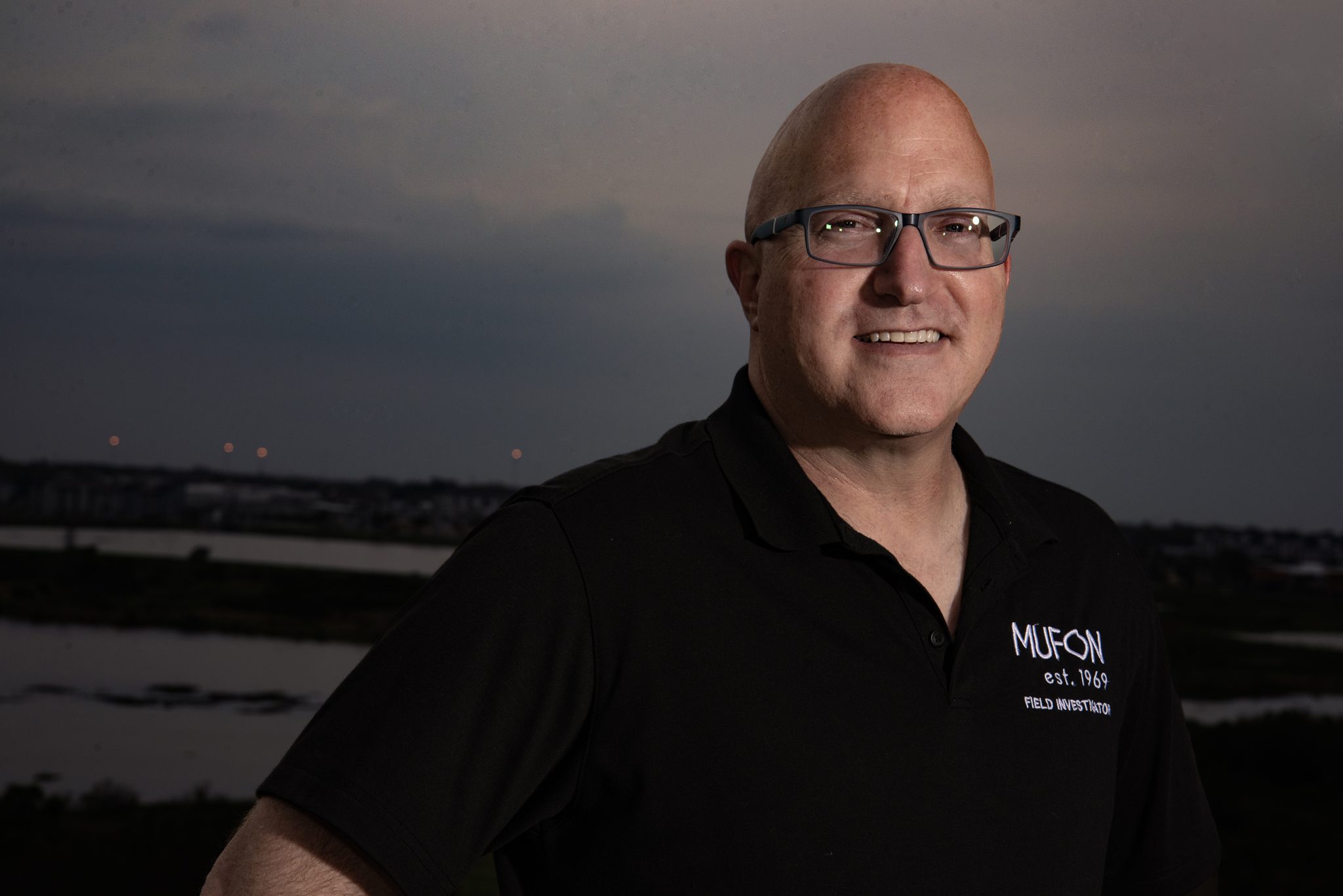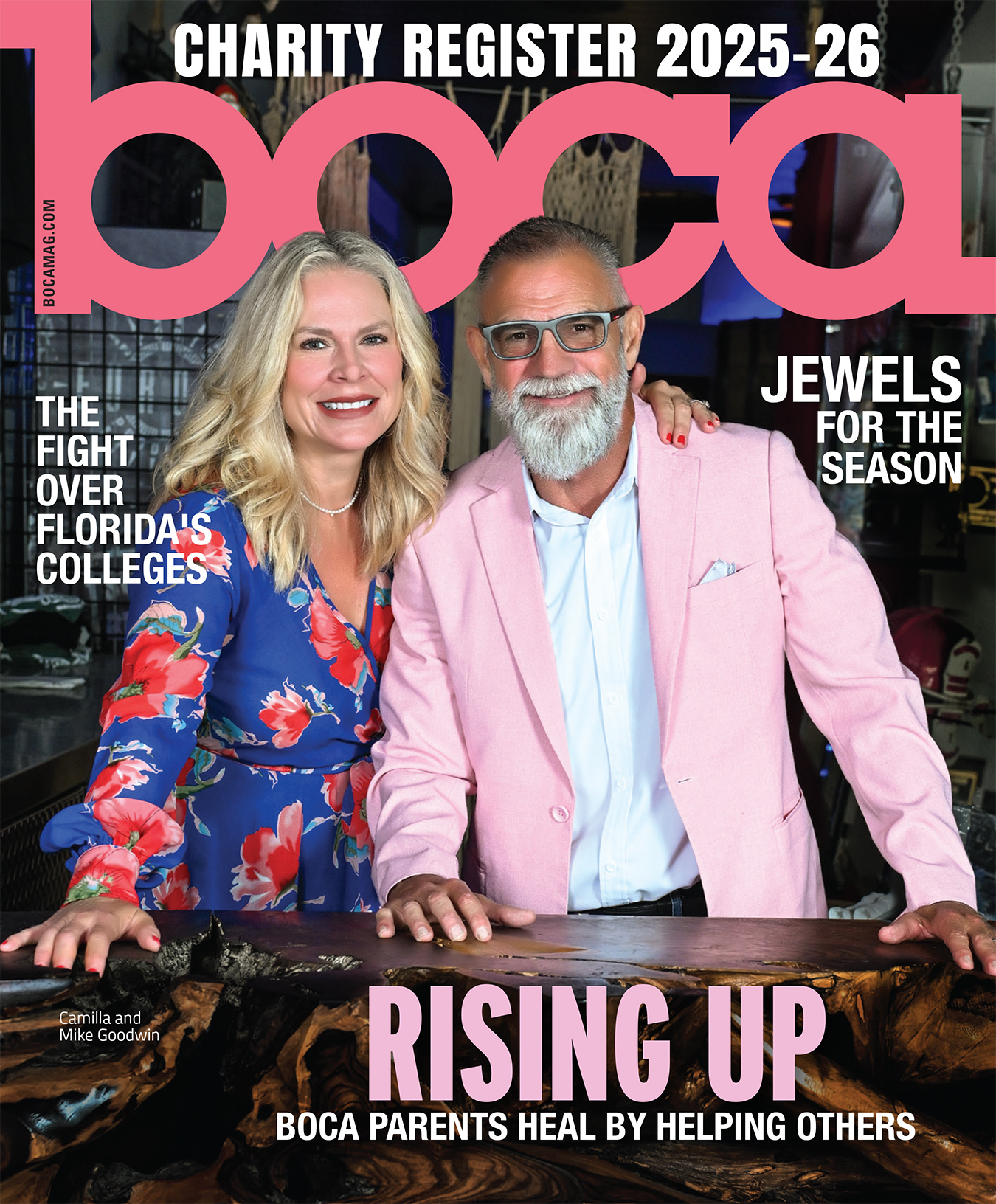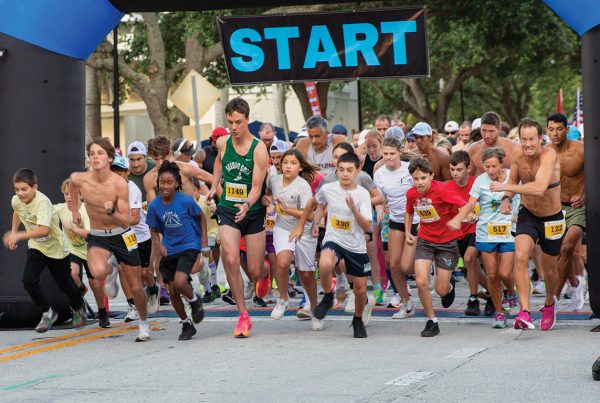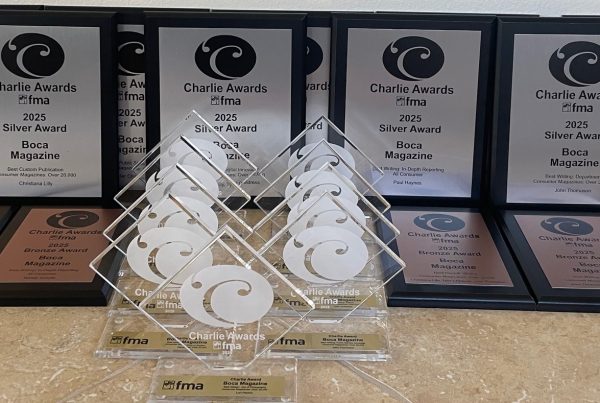For our May-June issue, we sat down with Bobby Hewitson, state director of Florida’s Mutual UFO Network (MUFON), and a longtime enthusiast of the supernatural and the unexplained. When Floridians witness something inexplicable in the skies and report it to MUFON, Hewitson is the first point of contact, and for the more credible claims, he’ll send an investigator to follow up.
As he explores in Boca magazine, Florida is among the top states for UFO reports, and he’s had some incredible incidents wind up on his desk just in the past year. In this Web Extra, we continue our conversation into the UFO mystery, from the local to the national level.
Is there a demographic difference in the type of reports you receive—from, say, a rural county in the Panhandle versus Orange or Miami-Dade County?
It does seem to come in spurts; 10 years ago it seems like the Panhandle was really busy; then it seemed like South Florida was really busy. Now it just seems to be spread throughout the state very easily.
If there are aliens out there, what are your thoughts on what they might want with us, and if they’re friendly or hostile?
It’s a great question. UFO encounters seem to be somewhere in the realm of positive to neutral. It certainly appears that in most cases there is not a negative response, unless we are the ones that act aggressively. On the flipside, unless you happen to be part of an abduction, there are cases when it’s not so friendly, and they are hostile. And sometimes the only thing they promise you is you’re not going to feel anything. Then there’s the PTSD—remembering certain parts but not everything.
This subject has become more mainstream since the 2017 Pentagon revelations in the New York Times. Do you think the government is finally starting to be on the level on this topic, and present truth to the American people? Or is there a hidden agenda?
I think the government’s UFO revelations since 2017 represent a significant departure from historical secrecy, signaling a more open approach to acknowledging UFOs. The acknowledgment of programs like AATIP and the establishment of the AARO demonstrate a growing recognition of the importance of studying these phenomena.
Are they genuinely on the same level with the American people? I think questions still persist about the depth of transparency and disclosure. While there’s been progress, instances of conflicting statements and occasional downplaying of certain encounters have fueled skepticism. The recent congressional hearings, including testimonies from individuals like David Grusch and Cmdr. David Fravor, highlight the intricacies of the matter and the obstacles our institutions encounter in delivering transparent and coherent information.
In essence, there’s been positive momentum in acknowledging UFOs, but the question of whether our institutions are entirely transparent remains. Look at the balloons that were in the United States airspace for days last year. What was it, and were they really balloons? I think it’s crucial for ongoing efforts to strike a balance between national security concerns and genuine transparency to build trust with the American people.
You mentioned David Grusch. What do you think of his whistleblower claims that the U.S. is in possession of off-planet craft and even dead alien pilots?
I think David Grusch’s testimony brings forth fascinating claims that shed light on the potential existence of a covert government program related to crashed alien spacecraft. His assertions, backed by evidence and statements from other witnesses, add significant weight to the ongoing discussion surrounding UFOs and government involvement. His emphasis on the importance of transparency and his commitment to sharing information with Congress in invaluable, and perhaps even heroic.
I think it’s clear that there’s a growing bipartisan interest in understanding the implications of UFOs on national security and the need for greater transparency from the government, but my concern is that things will soon be swept under the rug in the name of “national security.”
Do you find that UFOs are a trendy thing to be into now—is it a passing fad for some enthusiasts?
I think for some, it might be. But with fads, people come and go. Some people still don’t believe, even though we have AARO and the four-letter companies backed by the government for these purposes. They still think it’s people wearing aluminum foil hats.
Do official government sources in this field have a relationship with civilian researchers in MUFON?
I’m not privy to the relationship, but my understanding is that there is some data, not all, that’s shared with members in the political arena. However, I will go on to say it is my opinion that MUFON has by far the largest amount of data collected from sightings since 1969. Where most UFO agencies are simply a reporting center, we have people that actually go out and investigate these things.
This Web Extra is from the May/June 2024 issue of Boca magazine. For more like this, click here to subscribe to the magazine.







